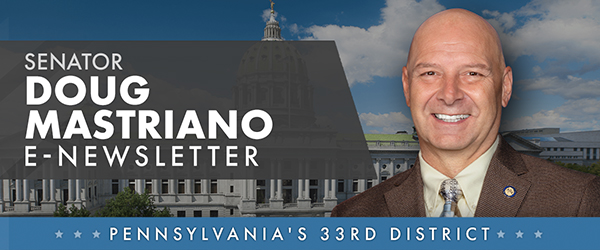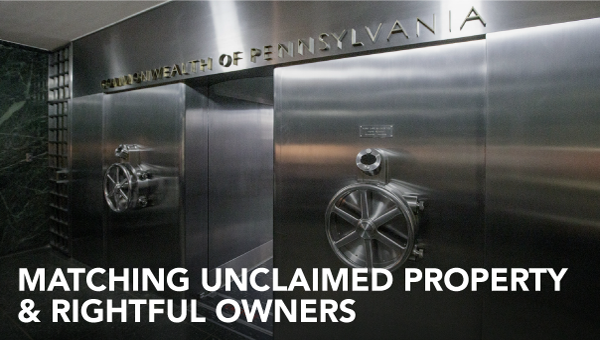
|
|||
|
In this Update:
Many Pennsylvanians might be surprised to learn that the national movement to prevent the abuse of dogs and cats in cruel and wasteful experiments began in the Commonwealth. Back in the 1960s, the first federal law protecting animals used in labs was prompted by a scandal in the Lehigh Valley involving pet dogs who were stolen and trafficked to deadly experiments in New York City. Since then, there’s been good progress in PA and elsewhere to curb wasteful government experiments on dogs and cats. But, as White Coat Waste Project’s viral #BeagleGate campaign and its other investigations have exposed, much more work is needed because tens of thousands of dogs and cats are still suffering in labs across the country, including here in the Keystone state. This news may come as a shock to many. Fortunately, we have a plan to cut this canine cruelty and cat-astrophic waste. Federal reports we’ve analyzed show that in 2021, over 4,000 dogs and cats were imprisoned in over a dozen Commonwealth labs including at the University of Pennsylvania, the University of Pittsburgh, and Temple University. There is even a Lancaster location of the disgraced industrial puppy breeder Envigo that abused and neglected dogs it sold to Temple and other labs for taxpayer-funded experiments. Records illustrate that over 1,100 of these dogs and cats were subjected to significant pain and distress. In some cases, pain relief was withheld from animals intentionally. Many of these horrible experiments on puppies and kittens, and the labs where they’re conducted, are funded with federal and state tax dollars, even though a supermajority of taxpayers oppose this cruel testing. We’re going to bat for animal-lovers and liberty-lovers across the state. The landmark legislation we’re working together to pass would ensure taxpayers aren’t forced to bankroll egregious and wasteful animal cruelty. We’re aiming to defund painful experiments on dogs and cats (which Virginia did a few years ago and federal lawmakers are working on now), prohibit the cruel practice of de-barking dogs so they can’t cry out in the lab, and cut off state funds for dog and cat labs that violate the law. We also want PA to join 15 other states (and numerous federal agencies) with policies on the books allowing dogs and cats in labs to be retired and adopted out to taxpayers when testing ends. In addition to these animal protection measures, we want to boost transparency about government spending on this waste and abuse. The new legislation directs labs experimenting on dogs and cats to publicly disclose if they were taxpayer-funded and how much public money they spent (which is required for animal labs by some federal agencies already), and requires the PA Treasury to issue an annual report on taxpayer funding for dog and cat experiments. Taxpayers have a right to know how their money is being spent and they shouldn’t be forced to foot the bill for cruel and wasteful experiments on dogs and cats that they oppose. Let’s make history in PA once again and lead the nation on efforts to protect our four-legged family members from government-funded abuse. The solution is clear: Stop the money. Stop the madness. State Would Automatically Return Unclaimed Property Under Bill Approved by Senate
The Senate unanimously approved legislation authorizing the state to return unclaimed property without the need for rightful owners to search for it. It now advances to the House of Representatives for consideration. Senate Bill 24 would authorize the Pennsylvania Treasury Department to automatically return single-owner property for living individuals valued up to $5,000 after a thorough identification and verification process. The legislation streamlines the return of unclaimed money and property by eliminating the need for citizens to search and file a claim. For larger and more complex claims, owners would still be required to complete a claim form and provide additional information to confirm their identity and rightful ownership. This commonsense initiative, which exemplifies how government should work to better serve its citizens, would return more money to hardworking Pennsylvanians who may be unaware of their unclaimed property. Search Treasury’s unclaimed property database here. Looking to Change Agency’s Culture, Senate Approves Bill to Rename DEP
The Senate approved legislation to rename the Department of Environmental Protection (DEP) to the Department of Environmental Services. Senate Bill 691, which now heads to the House of Representatives for consideration, will have no effect on the jurisdiction or current statutory or regulatory authority of the department. The word “protection” in the department’s name carries a law enforcement connotation rather than that of an environmental resource and partner to the citizens of Pennsylvania. Emphasizing that the department is focused on services will be a major step forward in instituting a needed culture change. DEP is charged with administering the laws of the commonwealth as enacted by the General Assembly. The General Assembly, through these legislative enactments, is responsible for ensuring the protection of the commonwealth’s environment and natural resources. Protecting Pennsylvanians from Unauthorized Tracking Devices
The Senate Judiciary Committee passed legislation to protect Pennsylvanians from the unauthorized use of electronic tracking devices. The bill now moves to the full Senate for consideration. While tracking devices have been used for decades, the release of the Apple AirTag has resulted in a low-cost proliferation of such technology. Rather than using them to locate commonly misplaced items, some people place them in people’s purses or on their vehicles when unaware. Current law is vague on criminal culpability. Senate Bill 159 would make it a misdemeanor of the second degree to use such devices to track another person without consent. Exceptions include law enforcement agencies conducting investigations and parents keeping tabs on their children. Simplifying Government, Ensuring Adequate Funding for Roads and Bridges
Legislation sponsored to replace Pennsylvania’s Alternative Fuels Tax on electric vehicle owners with a flat fee was approved by the Senate Transportation Committee. It would simplify the process for electric vehicle owners and ensure all drivers are contributing toward the maintenance of roads and bridges. Currently, owners of electric vehicles are required to file monthly statements with the Pennsylvania Department of Revenue and remit the alternative fuel tax on how much electricity their vehicle uses. However, most electric vehicle owners do not do this, or are inconsistent at doing so, due to the cumbersome process or simply being unaware. Senate Bill 656 would exempt electric vehicle owners from the tax and replace it with a flat annual fee of $290. The fee was calculated based on the average annual gas taxes paid by owners of gas-powered vehicles. Like the gas tax, the revenue from the flat fee will be deposited into the Motor License Fund for highway maintenance and construction. Measure Connecting Individuals in Recovery to Occupations Approved by Committee
To combat Pennsylvania’s heroin and opioid epidemic, the Senate Labor and Industry Committee passed a bill to connect individuals in recovery with jobs. It now moves to the full Senate for consideration. Senate Bill 69 would establish the Recovery to Work Pilot Program, pairing those in recovery with occupations through local workforce development boards. As local workforce development boards would lead the implementation, the strategies will be locally focused to meet the needs of local employers and the local treatment and recovery community. Additionally, the legislation would provide incentives for businesses and training providers to participate in the program. Bill Ensuring Educational Opportunities for Military Children Receives Committee Support
Legislation to reduce the educational challenges faced by children of PA National Guard and Reserve members was approved by the Senate Education Committee and is before the full Senate for consideration. Military families face frequent reassignments, posing educational challenges for children transitioning between schools in different states. Senate Bill 209 would give children of National Guard and Reserve members the same help provided to those of active-duty military families through the Military Interstate Children’s Compact. The compact provides a consistent set of policies that make getting started in a new school, joining extracurricular activities and meeting graduation requirements as easy as possible for military children. Free Junior Game Warden Camps Offered Across PA
The Pennsylvania Game Commission (PGC) offers free Junior Game Warden Camps in each of PGC’s six regions in June and July for youth ages 12-15. Campers will learn about wildlife crime forensics and how wardens catch poachers and solve wildlife-related crimes. Additional instruction will include woodland tracking skills, outdoor survival skills and wildlife capture techniques for nuisance complaints and research purposes. Registration, available here, is limited to those who have not attended a camp previously. |
|||
|
|||




Want to change how you receive these emails? 2026 © Senate of Pennsylvania | https://senatormastriano.com | Privacy Policy |






